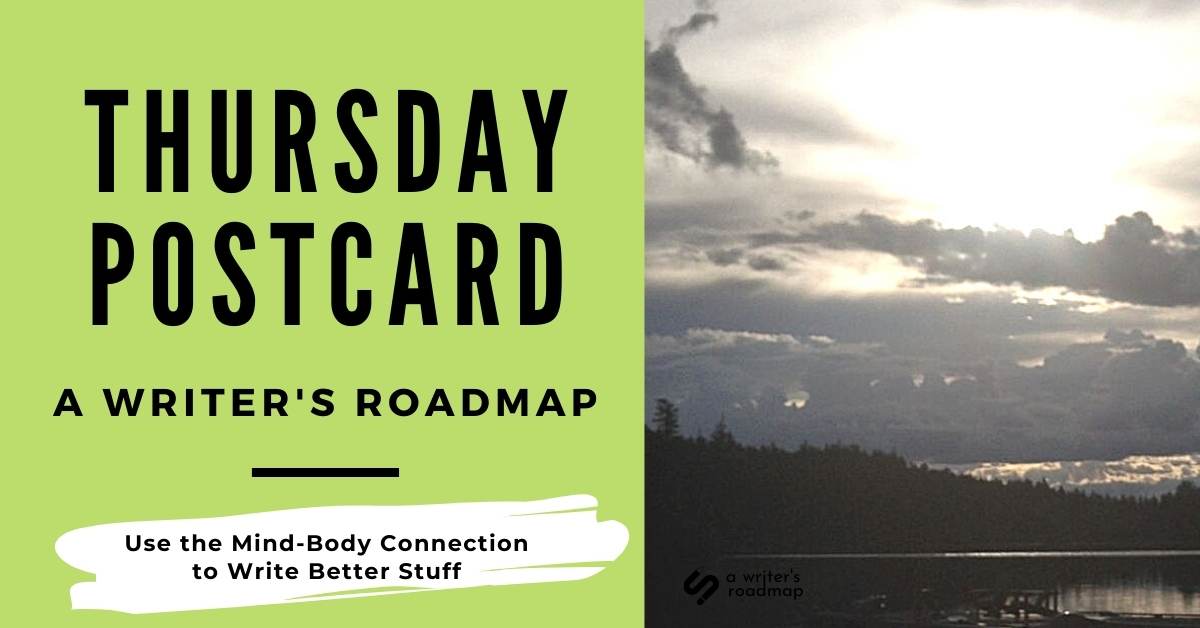Thursday Postcard
May 12, 2022
“The writer’s path lies, always, on the road of feeling.”
Stephen Harrod Buhner
Ensouling Language: On the Art of Nonfiction and the Writer’s Life
Everyone has a body made up of cells, organs, bones, vascular and neural systems, et cetera (my medical training was cut short in kindergarten, so that’s all I know).
Everyone also has an energy body, which is easy to feel if you close your eyes and “listen” to your inner perceptions, maybe starting somewhere in your chest and moving up and down parallel to your physical spine. It might feel like buzzing or tingling or a flow of interconnecting streams.
The energy body extends beyond your skin. There’s no hard boundary between your energy body, the world outside, and outer space / the universe.
That’s about all I know on that topic, and I will be the first to say that it’s not much, and it’s mostly from personal experience and feelings.
How the Mind-Body Connection and Writing Relate
When you write, whether you have use of your entire physical body or not, getting out of your head and dipping into your energy body can help you find the essence of what you’re writing about.
It might not be what you set out to write. It might not SEEM related to the project you’re working on. But it relates to something, and that something is in the project just as much as it’s in your day job and your relationships and your physical body.
Stephen Harrod Buhner, in Ensouling Language, writes about kinesthetic perception (e.g., touching a hot stove), emotional perception (e.g., I feel sad), and environmental perception (e.g., the vibe in a restaurant). He says,
“Now the last kind of feeling, the one that occurs when you go into a restaurant that feels so uncomfortable you decide to leave, is a pretty common experience although almost no one talks of it. It’s the kind of feeling that is usually the domain of artists and other people who don’t fit into the boxes of life all that well. It is the most atrophied kind of feeling in the Western world, which is a problem, because it’s this kind of feeling on which the craft of writing depends.”
Buhner, Ensouling Language, p. 55
Articulating that feeling is what makes writing live beyond the intellectual or physical realm, and I believe it takes practice and intention. It can be hard to look into that stream of energy. You might see distractions and emotions lurking somewhere inside it, and those might make you want to step outside again.
But don’t!
Yes, books written solely by the mind can be good. But books written with your entire self, including those feelings that take a different kind of perception and vocabulary and willingness to look inside yourself, can be great.
Cheers,
Pat
Cheers,
Pat

